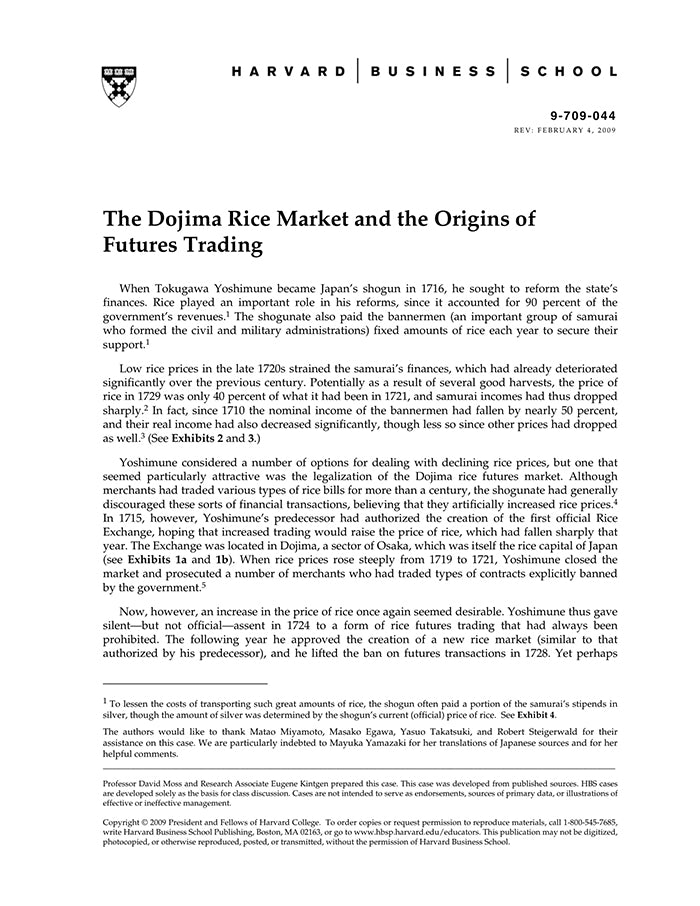The Dojima Rice Market and the Origins of Futures Trading
受取状況を読み込めませんでした
In 1730, Japanese merchants petitioned shogun Tokugawa Yoshimune to officially authorize trade in rice futures at the Dojima Exchange, the world's first organized (but unsanctioned) futures market. For many years, the Japanese government had prohibited the trade of futures bills because it was widely regarded as a form of gambling that caused rice prices to rise. However, when the price of rice fell to record lows in the late 1720s, the samurai (whose income was tied to the value of rice) saw their economic position fall relative to the merchant class, whose growing economic power worried the nation's elites. The shogun responded by easing restrictions on futures trading, but without officially sanctioning a futures market at Dojima. The question now was whether he should heed the merchants' petition and take the next step.
【書誌情報】
ページ数:21ページ
サイズ:A4
商品番号:HBSP-709044
発行日:2009/1/30
登録日:2009/3/19


